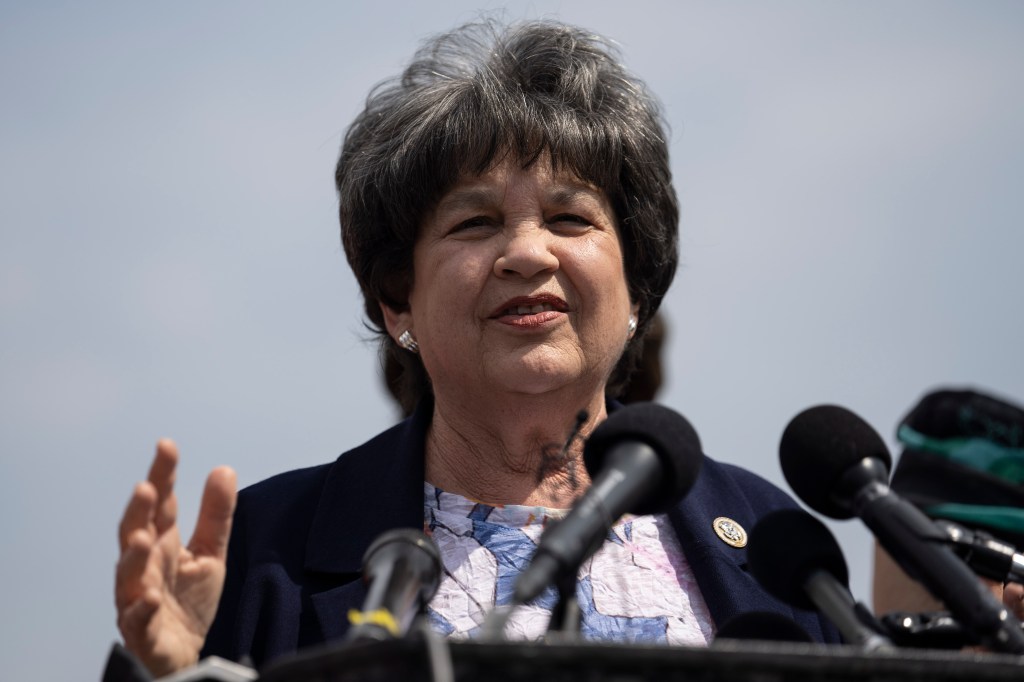Months after the #Metoo movement against sexual misconduct first made headlines, a bipartisan group of congressional lawmakers have introduced far-reaching legislation to curb harassment in the workplace.
The bill, put forth Wednesday, has a laundry list of goals, including regulating the use of non-disparagement and non-disclosure agreements, or NDAs. It would amend the tax code to make sure that harassment can’t be written off as “the cost of doing business,” and create a confidential workplace harassment hotline at the Equal Employment Opportunity Commission. The bill would also help develop harassment trainings for employees and create a PSA about workplace harassment.
Videos by VICE
It’s ambitious, to say the least, as its unwieldy name, the “Ending the Monopoly of Power Over Workplace harassment through Education and Reporting,” or the EMPOWER Act, indicates. But workplace harassment is a widespread problem: In fiscal year 2015, nearly one third of the 90,000 reports that the EEOC received about discrimination in the workplace had to do with harassment, the EEOC revealed in 2016 report.
“Everyone deserves to work in an environment that’s free of harassment,” Dariely Rodriguez, director of the Economic Justice Project at Lawyers’ Committee for Civil Rights Under Law, told VICE News. If the bill passes, Rodriguez said, “Victims of harassment will be encouraged to speak out against workplace abuses, and it will also motivate employers to do the right thing and to take proactive measures to root out harassment.”
The Committee is one of several humanitarian and civil rights groups that have endorsed the law, including the NAACP, the AARP, and the Human Rights Campaign.
Under the bill, public companies would be required to publicly reveal the number of harassment cases they’ve settled, and just how much those settlements cost. They would also need to disclose, in their U.S. Securities and Exchange Commission filings, whether any employee was named in multiple settlements. That kind of accountability and public attention, supporters say, could convince companies that it’s simply not worth keeping a predatory employee on the payroll.
Companies would also be barred from applying for tax deductions on litigation over harassment claims. Plus, employees who win money through workplace harassment settlements won’t see that income taxed.
The bill notably tackles one of the recurring plot points of the most prominent #MeToo stories: people fearing to speak out after signing NDAs. The EMPOWER Act would ban companies from making prospective employees sign NDAs when they’re hired on. Too often, activists say, corporations use these NDAs to create a culture of silence and uncertainty about the costs of speaking out.
Such NDA clauses are quite common, Rodriguez said, even in workplaces that may not have traditionally required them. About a third of U.S. workers are bound by some type of NDA, according to a 2015 Vanderbilt University Law School study. (That statistic includes workers who sign NDAs after finalizing a settlement; several women who knew about Harvey Weinstein’s alleged pattern of sexual harassment, for example, signed such NDAs.)
“It’s one thing when you’re talking about Hollywood and high-powered employees who may have the resources to obtain an attorney and help them navigate that process, but it’s another thing when you’re talking about employees who are disproportionately poor,” Rodriguez said. “Employees, they sign these contracts — or even candidates for jobs, they sign these contracts — without understanding what rights they have signed away.”
Florida Democrat Rep. Lois Frankel, Texas Republican Rep. Ted Poe, New York Democrat Rep. Jerry Nadler, Virginia Republican Rep. Barbara Comstock, and Delaware Democrat Rep. Lisa Blunt Rochester have all signed on to back the EMPOWER Act, but it’s unclear just how much traction it’ll receive in Congress. Last month, California Democrat Sen. Kamala Harris and Alaska Republican Sen. Lisa Murkowski introduced a companion version of the legislation to the Senate.
That bill remains in committee.
Cover image: Rep. Lois Frankel (D-FL) speaks during a news conference on immigration to condemn the Trump Administration’s “zero tolerance” immigration policy, outside the US Capitol on June 13, 2018 in Washington, DC. Photo by Toya Sarno Jordan/Getty Images.




